Our Blog
Keeping your child's smile healthy starts with regular visits to the dentist. At Dentistry for Children & Adolescents in Edina, MN, we make dental visits fun, comfortable, and stress-free for kids of all ages. Call us today at 952-831-4400 to schedule your child's next appointment.
Ensuring your child's dental health is vital for their overall well-being and development. As a parent, you may encounter various dental issues that require professional attention. Fortunately, Dentistry for Children & Adolescents provides exceptional family dental services in Dakota County, MN, for addressing these common issues. Below, we explore the most common pediatric dental problems and how our expert team addresses them with specialized care and skill.
If your child feels nervous about dental visits, you're not alone. Many families in the area now choose Laser Dental Care in Burnsville, MN, for a less scary, more comfortable experience. At Dentistry for Children & Adolescents, we focus on making dental visits pain-free and welcoming. Call us at 952-435-4102 to learn how laser technology helps children feel calm and cared for during appointments.
As a parent, you want the best for your child’s smile, especially when it comes to their dental care. If your little one gets nervous about dentist visits, laser dental care in Edina, MN, offers a painless, stress-free alternative to traditional treatments. At Dentistry for Children & Adolescents, we use advanced laser technology to make dental visits faster, gentler, and more comfortable for kids.
Taking care of your family's dental health is crucial for their overall well-being, and choosing the right family dental care can make a significant difference. Dentistry for Children & Adolescents offers specialized care for individuals of all ages in Richfield, MN, ensuring your entire family enjoys healthy smiles. In this blog, we will explore the top five reasons why family dentistry is essential for your loved ones' health and happiness.
 Baby bottle decay is an issue that parents should take seriously to protect the health of their little one's first set of teeth. While baby teeth are temporary, they play a vital role in your child's overall oral health and development. Preventing baby bottle decay requires a clear plan and consistent effort, but the good news is that it's completely achievable with some simple yet effective steps.
Baby bottle decay is an issue that parents should take seriously to protect the health of their little one's first set of teeth. While baby teeth are temporary, they play a vital role in your child's overall oral health and development. Preventing baby bottle decay requires a clear plan and consistent effort, but the good news is that it's completely achievable with some simple yet effective steps.
 Navigating the teenage years comes with its own set of challenges, and maintaining proper dental hygiene is a crucial aspect of overall health during this stage. Establishing good oral care habits now can set the foundation for a lifetime of healthy smiles. Here's a comprehensive guide to daily hygiene practices that teens should follow for optimal dental health.
Navigating the teenage years comes with its own set of challenges, and maintaining proper dental hygiene is a crucial aspect of overall health during this stage. Establishing good oral care habits now can set the foundation for a lifetime of healthy smiles. Here's a comprehensive guide to daily hygiene practices that teens should follow for optimal dental health.

Teething marks a significant milestone in your baby's development, often associated with discomfort and sleepless nights. This period can be challenging, but pediatric dentistry plays a crucial role in ensuring your baby's first teeth emerge healthily and comfortably. Understanding how a dentist can assist during this phase is essential for new parents.
 Dental health is crucial for your child's overall well-being, and sometimes, traditional methods may not be enough to address specific oral issues. Laser dental procedures have gained popularity in recent years due to their minimally invasive nature and effectiveness. They can be beneficial in a variety of situations that may arise in your child's dental care journey. Understanding these instances can help you make informed decisions about your child's oral health.
Dental health is crucial for your child's overall well-being, and sometimes, traditional methods may not be enough to address specific oral issues. Laser dental procedures have gained popularity in recent years due to their minimally invasive nature and effectiveness. They can be beneficial in a variety of situations that may arise in your child's dental care journey. Understanding these instances can help you make informed decisions about your child's oral health.
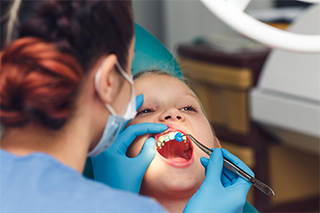 Ensuring your child's oral health from an early age is crucial for their overall well-being. While baby teeth may seem temporary, the care they receive can have lasting effects on their dental health and development.
Ensuring your child's oral health from an early age is crucial for their overall well-being. While baby teeth may seem temporary, the care they receive can have lasting effects on their dental health and development.
 Taking your child to their first dental appointment can be a daunting experience for both you and your little one. However, with proper preparation and a positive attitude, you can make this milestone a smooth and stress-free event. A good first dental experience sets the tone for your child's attitude toward oral health and dental visits in the future. Here are some tips on how to prepare your child for their first dental appointment.
Taking your child to their first dental appointment can be a daunting experience for both you and your little one. However, with proper preparation and a positive attitude, you can make this milestone a smooth and stress-free event. A good first dental experience sets the tone for your child's attitude toward oral health and dental visits in the future. Here are some tips on how to prepare your child for their first dental appointment.

When it comes to ensuring your child's dental health, fluoride plays a pivotal role. Fluoride is a naturally occurring mineral that helps prevent tooth decay and can even repair teeth in the early, microscopic stages of dental disease. Parents often have questions about fluoride—how it works, its safety, and how much their child needs. This guide aims to clear up any confusion and provide you with the information necessary to make informed decisions about your child's dental care.
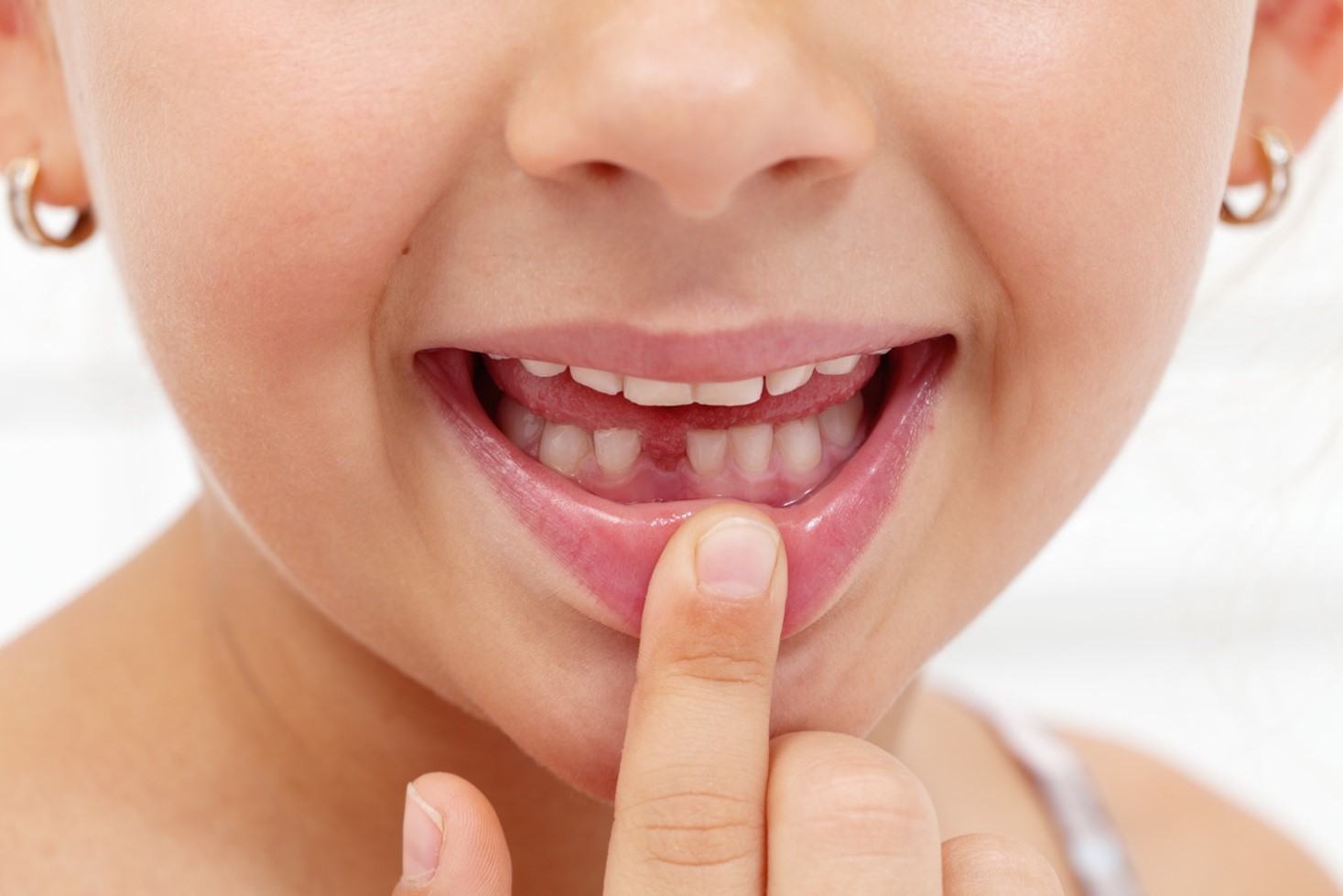
As a parent, it can be concerning when your child's baby teeth don't seem to fall out on schedule. While each child develops at their own pace, there are certain reasons why this may be happening. In this article, we'll explore some of the common issues that could be causing your child's baby teeth to linger and what you can do about it.
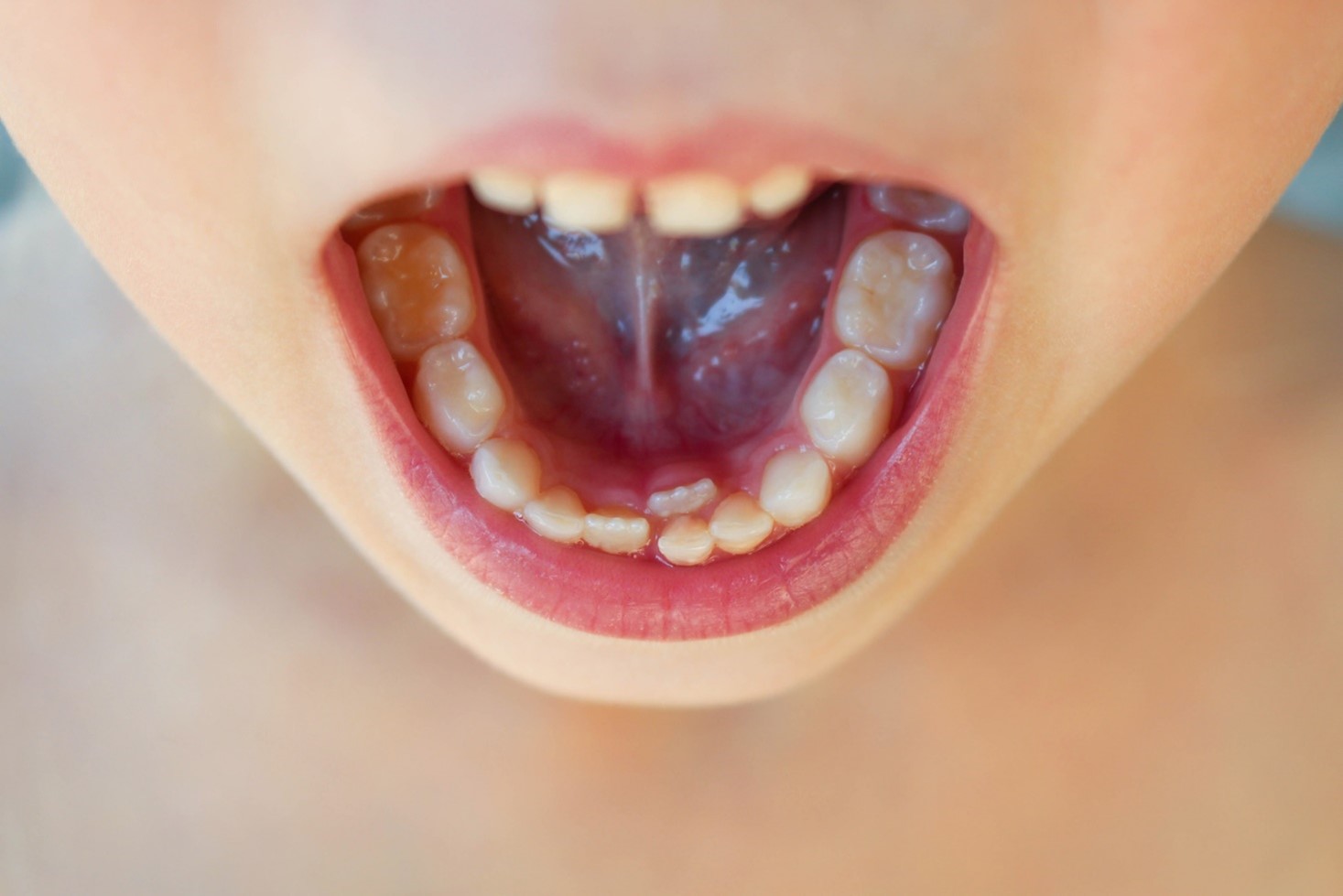
Shark teeth are a phenomenon that parents of young children may encounter as their little ones begin to lose their baby teeth. In the world of pediatric dentistry, it's a fairly common occurrence, but it can be surprising and even alarming if you don't understand what's happening.
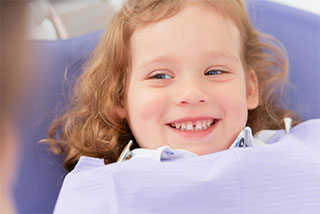
As a parent, helping your child feel comfortable and at ease during a dental appointment is crucial for their overall dental health. Many children feel anxious or nervous about visiting the dentist, which can make the experience stressful for both them and you. However, there are several ways you can help your child have an enjoyable dental appointment and ensure they maintain good oral health. In this blog post, we will discuss some tips and strategies for making your child's dental visit a positive and stress-free experience.
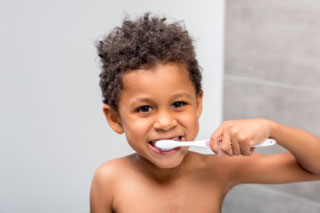
Oral health is an essential part of overall health in both children and adults. The sooner children are exposed to healthy habits regarding their teeth, the better their chances are of having healthy teeth as adults. Your job as a parent is to ensure that your children have the best oral and physical care.

Dental hygiene is an important aspect of maintaining overall health, especially for children. The teeth and gums are the first line of defense against bacteria and viruses that enter our body through food and drinks. Teaching children good oral hygiene at an early age can help prevent cavities, tooth decay, gingivitis, and other dental problems in the future.

You watch in awe as your little one explores the world, discovering new things each day. One habit that often accompanies this exploration is thumb-sucking—a seemingly innocent behavior that brings comfort to your child. While it is a natural reflex for infants, prolonged thumb-sucking can have implications for their dental health. Discover information about how thumb-sucking can affect your child's teeth and what a pediatric dentist can do to help.
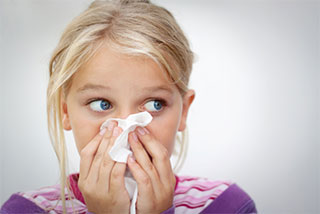
Does your child have a nagging cough? Colds and other respiratory viruses can do more than make your child feel ill. They can also impact your sick kiddo's oral health—especially if they use cough drops. Take a look at what parents need to know about dental health, childhood respiratory illnesses, cough drop use, and cavity prevention.

Is your teen an athlete? Whether your child plays soccer, football, baseball, basketball, wrestles, is a cheerleader, or participates in any other sport, they're at risk for a dental injury. Take a look at what parents need to know about sports-related dental injuries in teens, the ways to safeguard their smiles while they pursue their athletic passions, and what to do if your child cracks, damages, or loses a tooth during practice or game play.

For years, dentists and health groups have been telling you about the dangers of sugars when paired with your child's dental health. While sugars can cause a lot of damage to the teeth and the gums, they are not the only concern for the mouth. You may find yourself feeling more relaxed giving your child sugar-free drinks, but the problems could persist.

As a child grows their baby teeth, the journey to their permanent adult teeth includes a lot of changes. You often want to be on the lookout for malocclusion. Malocclusion represents the general term for a bad bite in the mouth. A bad bite could include an overbite, an underbite, or a mouth with crowded teeth that overlap each other.

If you have a child with special needs, then you know the extra time and care you need to put into a wide range of routine things like healthcare appointments. Dental health is extremely important for any child, especially as they lose teeth and their mouths grow and change.
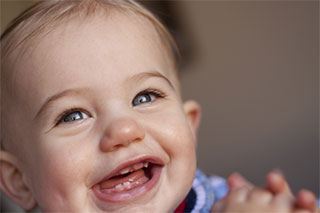
What are the dental milestones your child should meet? You've read about when your child should walk, talk, and meet other common milestones. But what about the markers of oral development? If you want to learn more about how your child's teeth will change over their first few years, look at parents' top questions about dental milestones answered.

Through the years, dental health importance has only increased in parents who want children to build a foundation of proper dental health practices. While many parents have learned about the dangers of soda and the increase in dental health problems associated with soda, a lot of new drinks have come out onto the market.
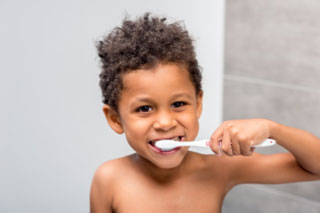
The hard, white outer layer of your teeth known as enamel serves as the teeth's first line of defense against bacteria and decay. Unfortunately, some children may have trouble maintaining this protective layer despite their best efforts. In many cases, the problem lies in a developmental problem called enamel hypoplasia.

A young child may not yet be able to properly articulate when they are suffering some sort of dental discomfort or pain. Yet, attending to dental problems quickly is key in preventing worse issues as your child gets older. Fortunately, there are some simple signs of mouth discomfort that you can watch for.

Babies experience numerous growth and development milestones, including the eruption of primary teeth, also known as baby teeth. These 20 teeth begin to grow in before a baby's first birthday and usually complete their eruption by the age of three. However, baby teeth face a potential threat called baby bottle tooth decay.

As another Thanksgiving approaches, many U.S. households celebrate the bounty in their lives by cooking up an impressive feast. Adults and children alike enjoy platters of turkey, stuffing, potatoes, cranberry sauce, and luxurious desserts. However, some of these servings can prove healthier for young teeth than others. As a concerned parent, you undoubtedly want to give your kids a delicious Thanksgiving dinner without encouraging dental problems. The following tips should help you achieve that goal more easily.

Cavities and childhood seem to go hand in hand. The majority of kids between the ages of six and eight have at least one cavity in a baby tooth, while the majority of adolescents develop at least one cavity in a permanent tooth. Tooth decay at any age can lead to serious dental complications, with weak or worn enamel raising the risk.
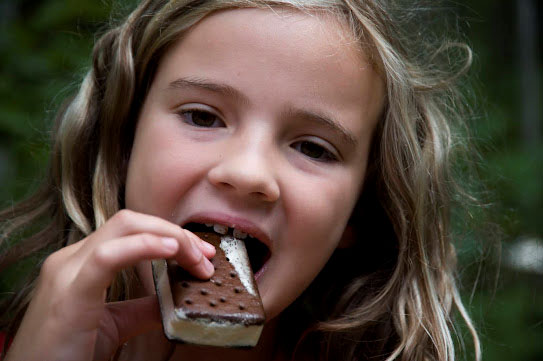
If you've looked into common threats to children's dental wellness as a concerned parent, you may already know that acidic foods and beverages can do serious harm to your little one's teeth. However, you should also know that stomach acid can cause similar damage in children afflicted with acid reflux issues.
The greater your awareness of pediatric acid reflux's causes, effects, and symptoms, the more effectively you and your pediatric dentist can work together against this dental foe. Check out the answers to the following frequently asked questions about acid reflux and children's dental health.

Many people think of gum disease as a problem that afflicts adults. While grownups can indeed struggle with the health of their gums, children can also develop the pain, bleeding, swelling, and other symptoms of gum disease. Fortunately, smart preventative strategies and timely treatment can turn this destructive trend around.
The more you understand about the causes, symptoms, treatment, and prevention of gum disease in children, the more effectively you can help your little one enjoy optimal oral health and retain a full set of teeth. Bring yourself up to speed on the subject by examining the answers to these frequently asked questions.

As a loving parent, you naturally feel concern whenever your child complains of any kind of pain, including dental, oral, or facial symptoms. If those symptoms include jaw pain, stiffness, and functional problems, you might need to schedule a pediatric evaluation for a potential case of temporomandibular joint (TMJ) dysfunction, or TMD.

One of the biggest transitions in a child's life is when they lose their baby teeth and adult teeth start growing in. The process is typically pretty seamless and exciting for children, but parents should check in with their child's dentist along the way. Dentist exams are essential as a child transitions to adult teeth.

Many parents celebrate their baby's first tooth as a major milestone in the child's growth and development, and rightly so. However, these early teeth, commonly known as baby teeth, milk teeth, or deciduous teeth, only remain in the mouth for a certain number of years, paving the way for the permanent adult teeth that follow.
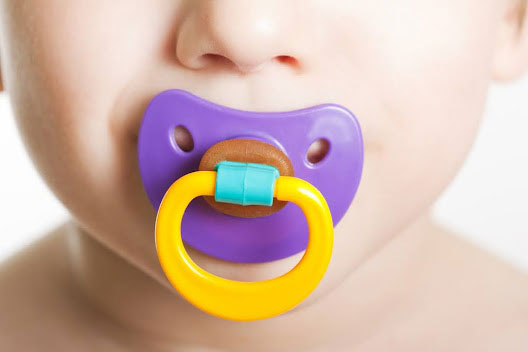
Anyone who knows babies and small children understands that they love to put things in their mouths, a preference that can lead to choking hazards and other health risks. However, you might not also realize that such ordinary childhood habits, such as sucking their thumbs and using pacifiers, can promote dental health challenges.
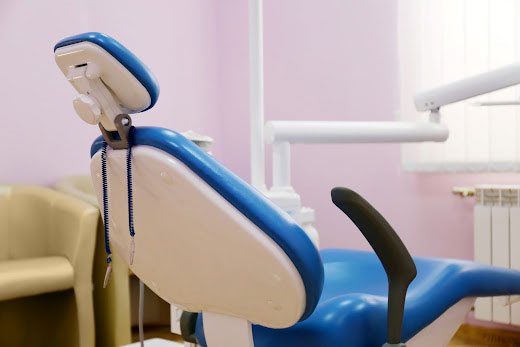
If you have a child with autism, then you may find taking proper care of their teeth and gums a challenge. You are not alone, because a recent study conducted on autistic children ranging in age from 6 to 16 revealed that about 59 percent of these children had poor dental health and a full 97 percent had gingivitis, which is a form of mild gum disease.
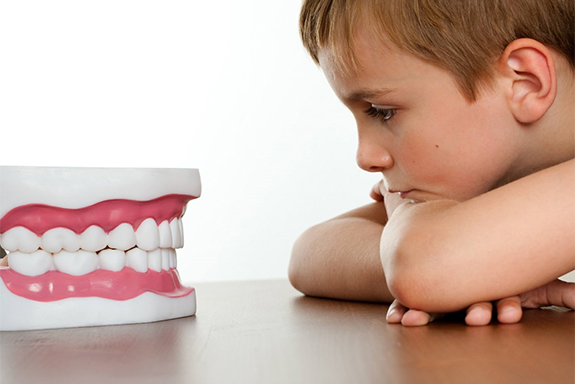
When your child hurts, so do you. Sensitive teeth can cause considerable discomfort, as you may know from your own personal experience with this issue. In addition to causing pain, tooth sensitivity can sometimes indicate an underlying dental problem that calls for prompt attention and professional care. As a concerned parent, you want to learn whatever you can about what might cause tooth sensitivity in kids, and how you can help relieve or even prevent this painful symptom. Take a moment to absorb the following four important points on the subject.
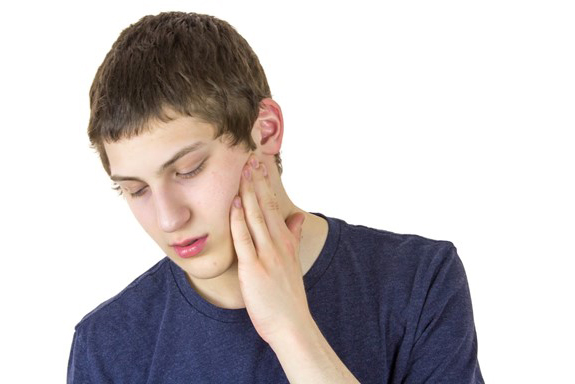
Teenagers stand at an awkward crossroads between childhood and adulthood, even though they technically still count as pediatric patients in the world of dentistry. As these youngsters encounter new stresses, peer pressure, and self-identity questions, the resulting behaviors can have unhappy effects on their dental and oral health.

Every new generation of children will go through common tooth concerns. This includes cutting down on sugar, proper brushing habits, and proper dental care through professional treatment. Each new generation also has their own set of issues to deal with. Popular trends and advancements in technology have multiple impacts on a child, including their dental health.

As many schools have reopened for on-site classes, parents once again need to think about their children's dental health and wellness in this environment. From vending machines that stock tooth-decaying products to injuries that might happen during play, you want to know how to help protect your children's teeth.

Nutrition and dental health have an inseparable connection to each other. So, it makes sense that an eating disorder — which greatly affects nutrition — can negatively affect dental health. Many children can suffer from eating disorders, especially as they enter adolescence. Here is a look at how eating disorders can negatively affect the dental health of children.

can summertime sweets and treats impact your child's teeth? Frozen fruit juice and creamy dairy delights can lead to dental issues if your child isn't careful. While you don't need to completely cut out all summertime sweets, take a look at what you need to know to keep your child's mouth healthy.

It's pretty safe to say that over the past few thousand years, human diets have changed greatly. While ancestors chewed on raw meat and bones, we are busy preparing a perfectly grilled cheeseburger. The human body was made to adapt to the changing conditions and each new generation is born with different traits. Many signs of evolution are found right in the mouth. When you take your child to the dentist, exams and routine cleanings can determine some of the unique qualities that have evolved over time. Read ahead to find out what to expect and what to specifically ask the dentist to look for during the next visit.

At any given time, an estimated 20 percent of children aged five to eleven and 13 percent of young people aged 12 to 19 suffer from one or more untreated cavities. Parents have every right to feel concerned about these statistics, especially with the easy availability of sugary and acidic foods and beverages.

When a child reaches double-digits, their body goes through many changes. One area where changes occur and go unnoticed is the mouth. With a transformation into adulthood, you should have an awareness of some possible dental health issues associated with these changes. Learn how puberty can impact oral health and the steps to take to help protect the adult teeth for years to come.
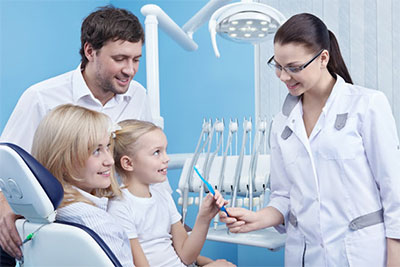
Some children are afraid of dental work. A child may handle cleanings and routine work, but their anxiety could become worse if they need more extensive work done like a filling or a tooth extraction. Avoiding the dentist could lead to more problems, so figure out how to help an anxious child and ensure they receive the proper dental care without taking any shortcuts or skipping out on treatment options.

When babies are born, one area parents become concerned about is the mouth. Parents monitor a child's mouth for milestones like the growth of a first tooth, but as soon as teeth pop up, dental health should become a priority. Every child is different, but some common habits can lead to major changes and problems in the mouth.
Learn about the habits, problems that can occur, and how those problems can lead to lifelong ailments in the mouth and jaw.

Thanksgiving is an ideal time for family gathering, eating, and kickstarting the whole holiday season. Unfortunately, problems can occur on the holiday, including dental injuries. With dental offices typically closed on Thanksgiving, you have to consider whether to call in for an emergency dental service or treat your child at home until the office opens again.

Children look forward to Halloween for many reasons. Along with dressing up in a costume, kids get to collect and eat lots of goodies, which usually consists of different kinds of candy. As a parent, you know all that candy isn't good for their teeth.

Parents and families with concerns about exposure to the novel coronavirus currently circulating throughout the globe often find themselves putting off routine appointments. But you have good reasons not to delay or avoid your children's dental visits. These reasons include protecting your little one's health, maintaining healthy habits, and even saving money over the long term.
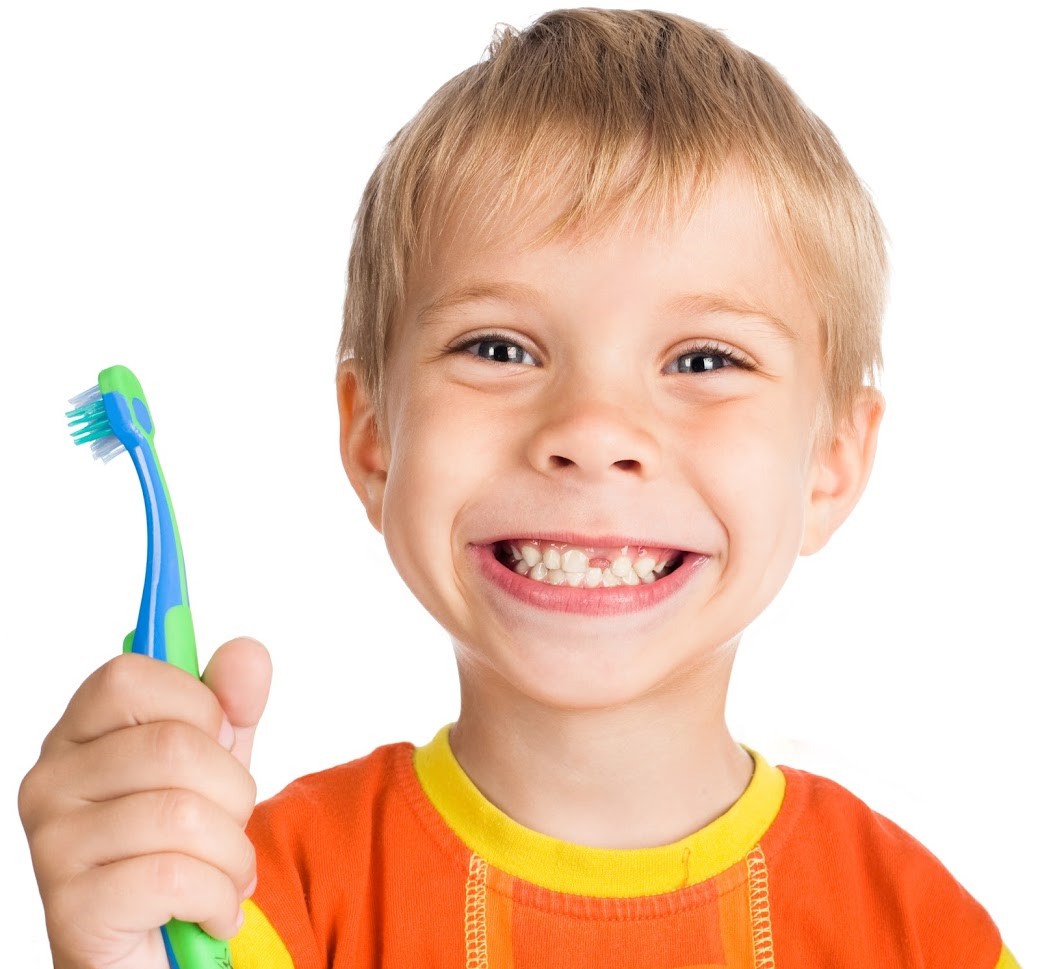
Parents must often wrestle with a great deal of information and advice when establishing healthy daily routines for their children. You may have found fluoride an issue that opens up numerous questions, from what it does and why children need it to how much of it a child should receive.
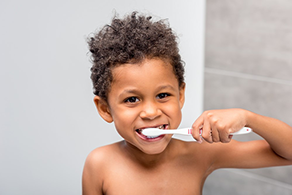
The appearance of a new baby tooth, or its eventual replacement with a new permanent tooth, usually signals the healthy ongoing development of a child's dentition. Occasionally, however, baby or permanent teeth don't grow in quite as expected, with the resulting abnormalities contributing to functional problems.

Many new parents (understandably) have questions about their new baby's teeth. Without any experience with baby teeth, including tooth brushing and tooth care, parents often turn to their child's dentist for information. This FAQ will help you understand your role in the care of your baby's teeth and will also answer some questions you might have about baby teeth.
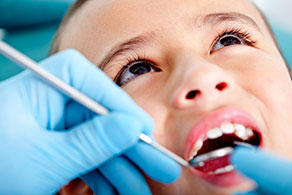
If your child is around the age of six or seven, then their adult teeth may have already begun emerging or should begin emerging soon. Like many parents, you may be excited that your child is reaching a new milestone in life, yet fearful that these teeth may have problems when they erupt.

If you are the parent of a baby, then it is important to prepare for the teething process. While the average baby begins teething around the age of six months, a baby's teeth can begin to emerge much sooner than this. In fact, it is not unheard of for a baby to begin teething at the age of just two months.

When your elementary school kids get to be around 11 and 12, you may be surprised at how much they are like teenagers. Some kids suddenly feel very mature as they near their teens, while other return to childish ways because they're afraid of growing up. No matter what phase your preteen is in, consider having these essential discussions with them about their dental care.

Although teenagers know how to brush and floss, getting them to do a good job of these habits is another issue. If your teen keeps getting cavities, then you may need to come up with some creative solutions to supplement their oral hygiene habits. Here are three ways to help your teen avoid cavities.

Start a back-to-school dental hygiene routine to help a child develop habits for adulthood and result in fewer problems during the school year.

Summer is the season for fun and athletic activities including baseball, soccer, skateboarding, and waterskiing. Protect your smile while you engage in all of your sports-related fun by following these four tooth-friendly summer tips.

Children need to develop positive dental care habits at a very young age. When they develop good habits, they have less room for bad ones to creep in. Setting rules is important when kids hesitate to brush and floss. Once you set dental rules for kids who have a hard time being consistent with their dental care routine, don't make these mistakes when enforcing the rules.
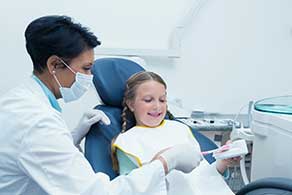
Many children have some fear or trepidation when seeing a dentist. That fear can create a negative perception of dentistry that lasts for a lifetime. Here is what you need to know about a child's fear of the dentist and what you can do about it.

By the time a child is 13 years old, they should have 28 of their permanent adult teeth. Some children will also get up to four more teeth called the third molars, or wisdom teeth. Most children and young adults get their wisdom teeth between the ages of 17 and 21.

Parents often try to teach their children optimal dental care habits early in life. No matter how many hours parents spend teaching kids the proper way to brush their teeth, floss, and swish with mouthwash, some teenagers seem to forget all they've learned about dental care over the years. Consider these strategies if your teens have neglected their dental care.
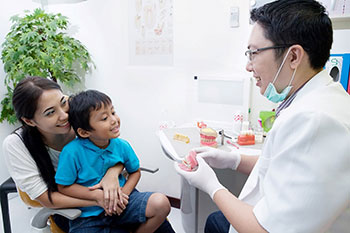
The best thing about a routine childhood dental examination is the chance for the dentist to find treatable problems in your child's mouth. Parents and caregivers don't always know how to spot tooth issues, but dentists have special training to identify problems that need to be fixed.

Flossing daily is beneficial for kids' overall oral health. It's easy to do and only takes minutes to complete. However, some children may be intimidated or even scared of flossing. Consider these do's and don'ts to help your children learn how to floss properly and even embrace this healthy habit.
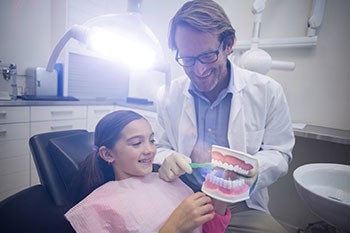
Finding a dentist for a special needs child can be difficult. While many dentists know how to meet the needs of pediatric patients, special needs children may require a dentist with extra experience and training. If you're a parent with a special needs child, here's what you need to know to find a dentist who can meet your child's needs.

During the holiday season, you can't keep kids away from every candy cane and gingerbread cookie they encounter. However, you can make children smile by stuffing their stockings and piling their present stacks with fun, pro-dental gifts. Here are six excellent kids' gifts to share.
When you're on a vacation, it can be easy to let your family's dental care slide along with other aspects of your normal routine. Unfortunately, children may experience dental decay and other problems with their teeth and gums if they neglect their dental care for even a little while. Follow these tips to help kids take good care of their teeth even when they're traveling.

Optimal dental care is more complex than brushing your teeth, flossing, and swishing with mouthwash. Yes, these daily habits are very important to teach your children, but their diet can also play a big role in their oral health. Teach your children to make food choices that are healthy for their teeth and gums.
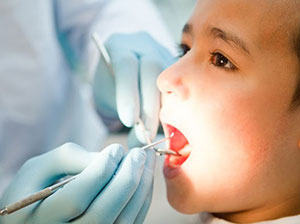
Childhood dental emergencies are no fun, but they're inevitable for most kids at some point. Life happens, and even kids with the best dental hygiene can suffer dental emergencies. If your children encounter one of the following dental emergencies, stay calm to help them through it and seek care from a pediatric dentist.
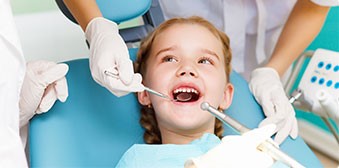
Any parent who has ever had a child swear loudly in public out of the blue knows that little ones pick up on what you do and say. They're observing even when you wish they wouldn't. When it comes to dental care, what your kids see you do can have a bigger impact than what you try to teach them. Follow these dos and don'ts to model the best oral health care to your kids.

If you are a parent, it's important for you to take the benefits of fluoride seriously. Children's teeth are much more susceptible to dental cavities than adults' teeth are. Primary teeth more readily dissolve in acidic environments.
However, you should take care not to overdo it. Too much toothpaste is toxic for children, especially when they are not proficient at spitting out after brushing. Never use mouthwash for young children unless expressly directed to do so by a dentist. Daily brushing with children's toothpaste and drinking fluoridated water will be sufficient in most cases.

From infancy, children use sucking behaviors to calm themselves. In fact, plenty of parents rely on pacifiers, teething toys, and other items designed for children to suck on in order to encourage emotional regulation in their children.
As children get older, they may develop the habit of finger or thumb sucking. Unfortunately, thumb sucking can have long-lasting negative side effects if the habit persists past age four. Possible side effects of prolonged or intense thumb sucking include the following five.

Your child's second and third years of life are marked with clumsiness. The quest to learn walking and running is punctuated with thousands of trips, falls, bumps, and bruises. Unfortunately, your child's teeth can be right in the path of injury. It only takes one fall on a hard surface to chip a tooth.
Chipped teeth are not always serious, but they can present some dental complications, especially for children who still haven't mastered dental hygiene or full speech. Here's what parents need to know about toddler tooth chips.

As a parent, you know the importance of keeping your child healthy and strong. However, many parents fail to realize how vital it is to keep their children's teeth intact in childhood.
Childhood tooth decay is the most prevalent chronic disease affecting children in the United States. A reported 40% of children have at least one cavity before they reach age five.
In this blog, we discuss why childhood tooth decay can be harmful for your child and how you can protect your child from cavities.
You've long understood the benefits of flossing: healthy gums, fresher breath, and fewer cavities, to name a few. You even encourage your children to floss whenever they brush their teeth.
Yet, despite your knowledge and reminders to your children, you struggle to floss regularly. And when your dentist asks if you've been flossing, you feel a little guilty for your negative answer.
But don't worry. You're not the only one to skip flossing.
As a parent, you naturally want your children to stay strong and healthy. You know that your children need a nutritious diet so their little bodies have the vitamins and minerals necessary for growth.
But ensuring your children eat the right foods is often easier said than done. Products advertised as healthy may have more calories and fat than you anticipated. And snacks that seem safe for young ones can negatively affect their teeth.
If you love Netflix, binge-watching, Stephen King, or '80s cult hits, chances are good that you watched the Netflix show "Stranger Things" in the summer of 2016. Even if you didn't, you've probably seen pictures of some of the show's adorable child actors, including Gaten Matarazzo, who has curly hair, a broad smile, and a rare condition that affects the bones and teeth: cleidocranial dysplasia.
Although a younger Gaten had roles in productions of shows like Les Misérables, he wasn't a stranger to being turned away from acting roles because of the lisp his condition causes. But in "Stranger Things," the writers worked his dysplasia into the script and-rightfully-didn't shy away from letting an actor with a rare genetic disorder have the same opportunities as other actors.
Traditionally, when children in the United States lose teeth, they put them under their pillows. During the night, their parents swap the teeth for a small amount of money and tell the children that the Tooth Fairy visited.
When your children lose their teeth, you may choose to follow this tradition. But how did it get started? Is there a point to it? If you want to learn more about the Tooth Fairy, keep reading. This blog will answer your questions.
As a parent, you want the best for your child’s smile, especially when it comes to their dental care. If your little one gets nervous about dentist visits, laser dental care in Edina, MN, offers a painless, stress-free alternative to traditional treatments. At Dentistry for Children & Adolescents, we use advanced laser technology to make dental visits faster, gentler, and more comfortable for kids.
